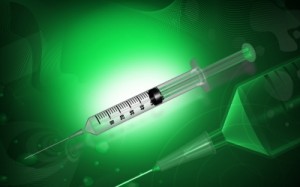If you’ve been diagnosed with vitamin B12 deficiency, then you probably have many questions. How did I get vitamin B12 deficiency, and how soon will I start to feel better? Here are some of the most frequently asked questions about vitamin B12 deficiency.
Q: Why do I need vitamin B12?
A: Vitamin B12 is a vital nutrient that controls many essential functions in your body. People with vitamin B12 deficiency, who don’t have enough vitamin B12 in their blood supply, eventually start to suffer major disorders in parts of their bodies where vitamin B12 is most needed.
Vitamin B12 is essential for the following biological functions:
- Protecting your nerve cells by sustaining the myelin sheath
- Promoting healthy red blood cell production
- Supporting DNA synthesis
- Maintaining stamina
- Enhancing cognitive functioning
- Breaking down homocysteine, a hormone linked with heart attack and stroke
- Preventing psychosomatic symptoms of vitamin B12 deficiency, like depression, nervousness, paranoia, and anxiety
- Preventing osteoporosis
Q: Where can I get vitamin B12?
A: Vitamin B12 (cobalamin) is a water-soluble nutrient, one of the B-complex vitamins. Vitamin B12 occurs naturally in all animal-based foods, including beef, poultry, fish, dairy, and eggs. The richest sources of vitamin B12 are liver, clams, crabmeat, lean beef, and halibut.
Q: What are the symptoms of B12 deficiency?
A: If you suspect you have vitamin B12 deficiency, it’s important to get your blood checked immediately. Left untreated, vitamin B12 deficiency can cause severe nerve cell damage and many uncomfortable side effects.
 Common symptoms of vitamin B12 deficiency include:
Common symptoms of vitamin B12 deficiency include:
- Extreme fatigue
- Depression
- Anxiety
- Irritability
- Aggressiveness
- Hallucinations
- Brain fog
- Sluggish thinking
- Low concentration
- Short-term memory loss
- Painful tingling and numbness in the hands and feet
- Partial paralysis
- Sore, red tongue
- Burning sensation in mouth, including lips, gums, and tongue
- Vision impairments
- Muscular weakness and pain
- Bone loss
- Restless leg syndrome
- Twitching
- Difficulty walking
- Poor motor skills
- Frequent clumsiness
- Diarrhea
- Acid reflux
Q: Who’s at risk for getting vitamin B12 deficiency?
A: Vitamin B12 deficiency remains one of the most widespread sources of malnutrition. People who are most at risk include:
- Vegans
- Anybody suffering from primary or secondary gastrointestinal disorders(gastritis, Crohn’s disease, IBS, autism, migraines)
- People who have undergone gastrointestinal surgery (ex: gastric bypass, ileostomy)
- People susceptible to autoimmune disorders (fibromyalgia, celiac disease, diabetes)
- Diabetics using metformin
- GERD patients using protein pump inhibitors (PPIs)
- The elderly
Undetected Vitamin B12 Deficiency- Why is B12 off the Radar?
Q: What is pernicious anemia?
A: Pernicious anemia is a disorder that interferes with production of intrinsic factor, a digestive protein that is crucial for absorbing vitamin B12. Pernicious anemia patients must supplement with non-dietary vitamin B12 throughout their lives, as they are unable to access B12 from food or pills.
Pernicious Anemia and B12 Deficiency- Historically Fatal, Still Formidable
Q: I have vitamin B12 deficiency. Do I also have pernicious anemia?
A: Pernicious anemia is a specific form of vitamin B12 deficiency. There exist only two ways of getting pernicious anemia:
- Damage to the stomach lining is one possible cause of pernicious anemia
- The existence of one of two intrinsic factor antibodies confirms pernicious anemia as an autoimmune disorder.
Q: If I eat plenty of meat, can I still get vitamin B12 deficiency?
A: YES. If you are diagnosed with vitamin B12 deficiency and you’re not a vegan, then you probably fall into the category of people who are unable to digest vitamin B12 naturally from dietary sources, including food and vitamin B12 pills.
Some non-dietary vitamin B12 supplements include vitamin B12 shots, b12 pills, and vitamin B12 sublingual tablets.
Q: What happens if I take too much vitamin B12?
A: There is no upper limit assigned to vitamin B12, so you can take as much as you like without suffering any side effects. The same cannot be said about many other vitamins, so always consult in your doctor before starting any new vitamin regimen.
Can Too Much Vitamin B12 be Harmful? 5 Vitamins to Watch Out for
Q: Once I start taking vitamin B12 supplements, how soon will I start to feel better?
A: Once you begin your regimen of vitamin B12, deficiency symptoms will start to decrease immediately, although you might not notice it right away. Some people notice decreased tingling in their hands and feet and increased stamina as early as hours after getting their first dose of vitamin B12, but for others, results occur more gradually, and may take several months before a noted increase in overall health is realized.
Timing is of utmost importance in treating vitamin B12 deficiency. If caught early on, then your chances of complete replenishment are excellent. In its latest stages, vitamin B12 deficiency can result in irreparable nerve damage.
Please tell us…
Do you have any questions or suggestions? Please leave your comments below.
Share with your friends!
If you found this article helpful, then please share with your friends, family, and coworkers by email, Facebook, or Google+.
Read more about vitamin B12 deficiency
Can Vitamin B12 Repair Nerve Cells?
Not Getting your Vitamin B12- Mistakes Fibromyalgia Patients Sometimes Make
Sources:
Dietary Supplement Fact Sheet:Vitamin B12
B12 deficiency: a silent epidemic with serious consequences
Images:


